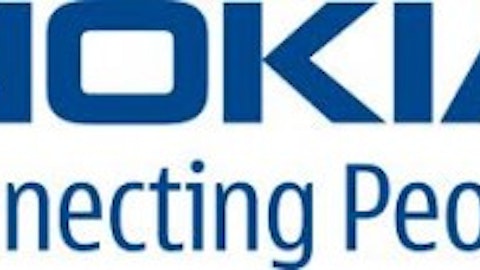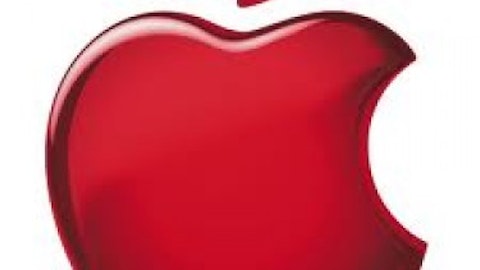Nokia Corporation (ADR) (NYSE:NOK) has decided to do something drastic about its brutally stalled business model. This quick whirlwind of dramatic action will leave ripples across the global wireless landscape for years to come.
First, Nokia signed a definitive agreement to buy out the other half of its Nokia Siemens Networks joint venture, paying Siemens AG (ADR) (NYSE:SI) $2.2 billion in the process. Then, the rumor mill pointed to Microsoft Corporation (NASDAQ:MSFT) buying Nokia’s handset business.
That move makes sense in the light of Nokia being Redmond’s preferred handset partner anyhow, and it certainly doesn’t hurt that Nokia CEO Stephen Elop is a former Microsoft VP. Moreover, you could argue that Nokia needs to sell something big in order to afford the Siemens deal. All signs point to a solid transaction taking shape.
So what’s left of Nokia, assuming that the handset talk is real? The Finnish company would become a pure-play provider of network infrastructure and services, shoulder to shoulder with market leader Ericsson (ADR) (NASDAQ:ERIC).
In fact, the transition would be very similar to Ericsson’s renewed focus on infrastructure, which involved selling off its interest in handsets to joint venture partner Sony Corporation (ADR) (NYSE:SNE). That transaction, which was completed in February 2012, hasn’t hurt Ericsson’s sales any and seems to have boosted the company’s cash flows.
ERIC Revenue TTM data by YCharts.
Nokia could definitely use a cash flow boost, given that the company dipped into rivers of red ink during the Microsoft partnership. Perhaps it’s best to let Microsoft CEO Steve Ballmer steer this sinking ship alone. It’s not a terribly bright idea, but fits perfectly with Ballmer’s arrogant management style. When Nokia’s formerly market-leading handsets go the way of the Palm brand and the dodo bird, Ballmer gets to reap the rewards in the form of financial damage. Turnaround stories don’t magically happen just because you put a giant corporation behind them.
NOK Free Cash Flow TTM data by YCharts.
On the other ends of Nokia’s announced and purported moves, Siemens gets out of the mobile game altogether. Siemens has struggled with sloppy execution lately, driving share prices down 26% in the last 2 years. At a recent industry conference, CFO Josef Kaeser explained the root cause thusly: “This was not about lack of competency on project management,” Kaeser said. “This was about taking on too much too quickly, and we did not finished on time or in the cost, and that is going to change. And that, ladies and gentlemen, is going to be supported by focusing the portfolio.”
In the same presentation, Kaeser also bemoaned the complexity of the wireless business. In other words, this simplification might be just what the doctor ordered for Siemens.
So there you have it. If everything works out according to current reports, we will have:
1). A stronger Nokia with a workable infrastructure-based business model,
2). A weaker Microsoft, saddled with Nokia’s worst assets, and
3). A simpler, cleaner, more focused Siemens. This German titan will be all about health care, energy infrastructure, and heavy industry.
This is where I give up my bearish CAPScall on Nokia at a modest loss. The Finns have finally found what they’re looking for.
The article How Nokia’s Big Changes Will Shape the Wireless Landscape originally appeared on Fool.com and is written by Anders Bylund.
Fool contributor Anders Bylund has no position in any stocks mentioned. The Motley Fool owns shares of Microsoft.
Copyright © 1995 – 2013 The Motley Fool, LLC. All rights reserved. The Motley Fool has a disclosure policy.








